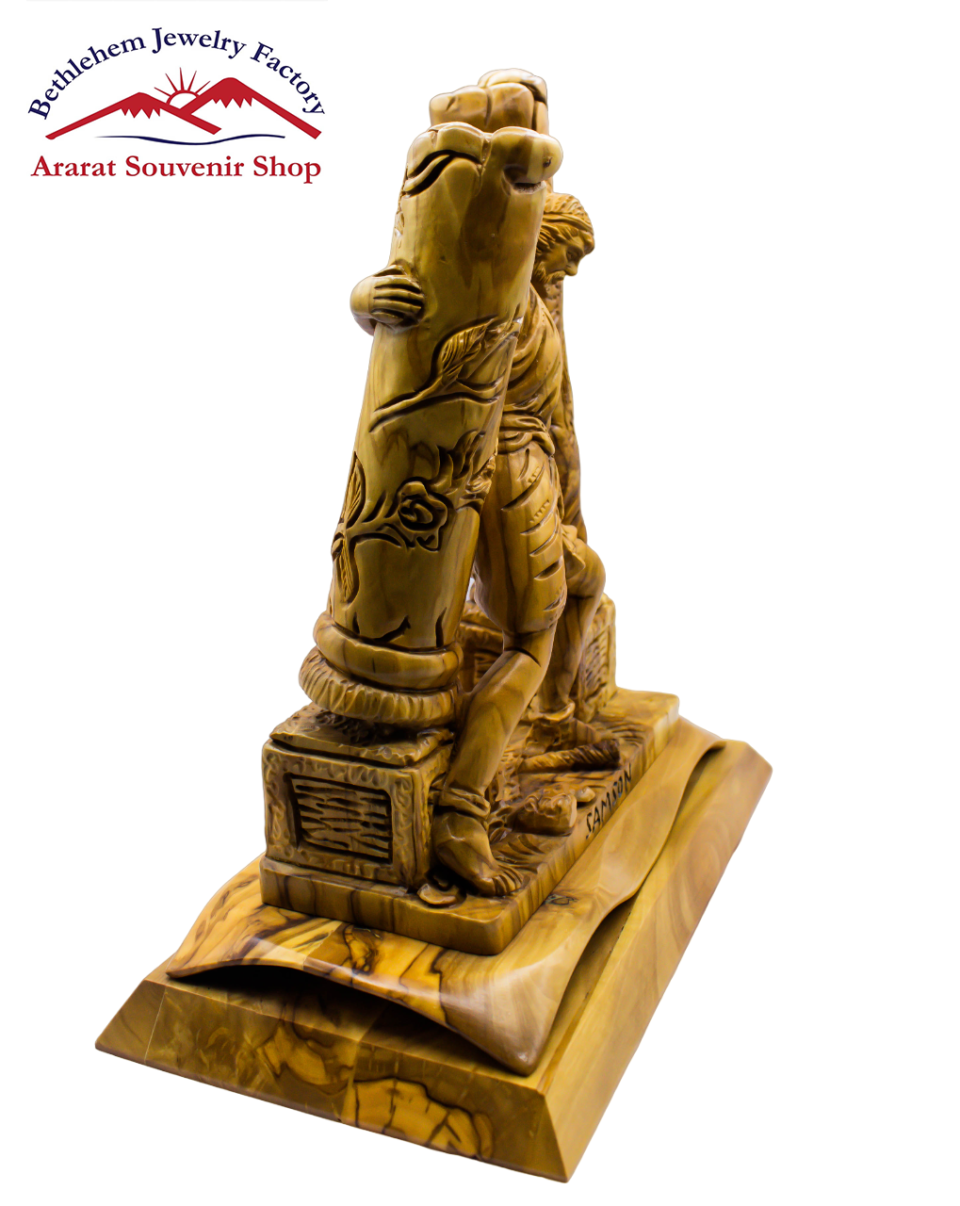SamSon
Samson is a prominent figure in the Hebrew Bible, specifically within the Book of Judges, where his story illustrates themes of strength, weakness, betrayal, and redemption. As one of the last judges of Israel, Samson is characterized by his extraordinary physical strength, his tumultuous relationships, and his struggle against the Philistines, a dominant enemy of Israel during his time.
**Birth and Nazirite Vow**
The narrative of Samson begins with an extraordinary announcement: his birth was foretold by an angel to his parents. They were barren, and the angel proclaimed that their son would be a Nazirite, dedicated to God from birth. This vow included commitments to abstain from wine, avoid contact with the dead, and refrain from cutting his hair, reflecting a life set apart for divine service.
The significance of the Nazirite vow is critical in Samson’s story. It symbolizes his special relationship with God and the unique purpose he is to fulfill—delivering Israel from the oppression of the Philistines. This divine calling underlines much of the tension in his story, as his failures often stem from his inability to fully honor this commitment.
**Strength and Valor**
Samson’s exploits are marked by his incredible feats of strength. The narrative recounts several encounters with the Philistines, where he demonstrates his prowess in unconventional ways. One notable incident involves him tearing apart a lion with his bare hands, an act that sets the stage for his subsequent battles. In another famous episode, he kills a thousand Philistines with the jawbone of a donkey, showcasing not just his strength but also his resourcefulness in the face of overwhelming odds.
Samson’s victories often lead to temporary relief for the Israelites, yet the underlying tension between him and the Philistines grows. Despite his strength, his character is marred by personal weaknesses, particularly in his relationships with women, which ultimately lead to his downfall.
**Delilah and Betrayal**
The most notorious part of Samson’s narrative involves his relationship with Delilah, a Philistine woman. Her allure and subsequent betrayal become pivotal elements in his story. The Philistines, seeing Samson as a threat, bribe Delilah to discover the secret of his strength. Despite Samson’s initial attempts to mislead her about the source of his power, he ultimately reveals that it lies in his uncut hair, the symbol of his Nazirite vow.
Delilah betrays Samson, lulling him to sleep and cutting his hair while he is defenseless. This act not only strips him of his strength but also symbolizes a deeper spiritual failure: his disregard for his commitment to God. Once his strength is gone, the Philistines capture him, gouging out his eyes and imprisoning him, marking a dramatic low point in his life and leadership.
**Redemption and Legacy**
Samson’s story does not end in defeat. While imprisoned, he experiences a moment of reflection and repentance. His hair begins to grow back, symbolizing a potential return to his former strength and mission. The climax of his narrative occurs during a Philistine celebration in their temple, where Samson is brought out to entertain the crowd. Regaining his strength, he prays to God for one final act of vengeance against the Philistines.
As he pushes down the temple pillars, Samson sacrifices himself to defeat his enemies, bringing down the structure and killing many Philistine leaders. This act of self-sacrifice redeems his earlier failures, illustrating the complexity of his character. Despite the personal costs, he ultimately fulfills his divine purpose by delivering a significant blow to the Philistine oppressors.
**Cultural Impact and Interpretation**
Samson’s story has been interpreted in various ways throughout history, serving as both a cautionary tale and a narrative of redemption. It explores the consequences of straying from one’s commitments and the ways in which personal weaknesses can lead to broader conflicts. Additionally, Samson is often seen as a symbol of strength intertwined with vulnerability, reminding readers that human strength can be easily undermined by moral failings.
Moreover, his narrative continues to resonate within popular culture, inspiring countless adaptations in literature, film, and art. His character embodies the struggle between divine purpose and human frailty, serving as a reminder of the complexities inherent in the human experience.
**Conclusion**
In conclusion, Samson’s life is a rich tapestry of strength, weakness, betrayal, and redemption. His story, filled with dramatic events and moral lessons, invites introspection about personal commitment, the consequences of one’s choices, and the possibility of redemption even after significant failures. As a transformative figure in Israel’s history, Samson’s legacy endures, reminding us of the intricate balance between strength and vulnerability. His journey encourages individuals to reflect on their own commitments, the power of redemption, and the importance of remaining true to one’s purpose.












Reviews
There are no reviews yet.